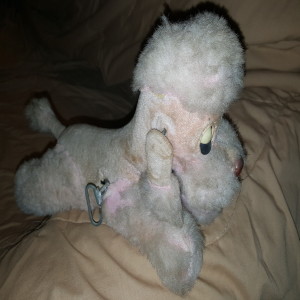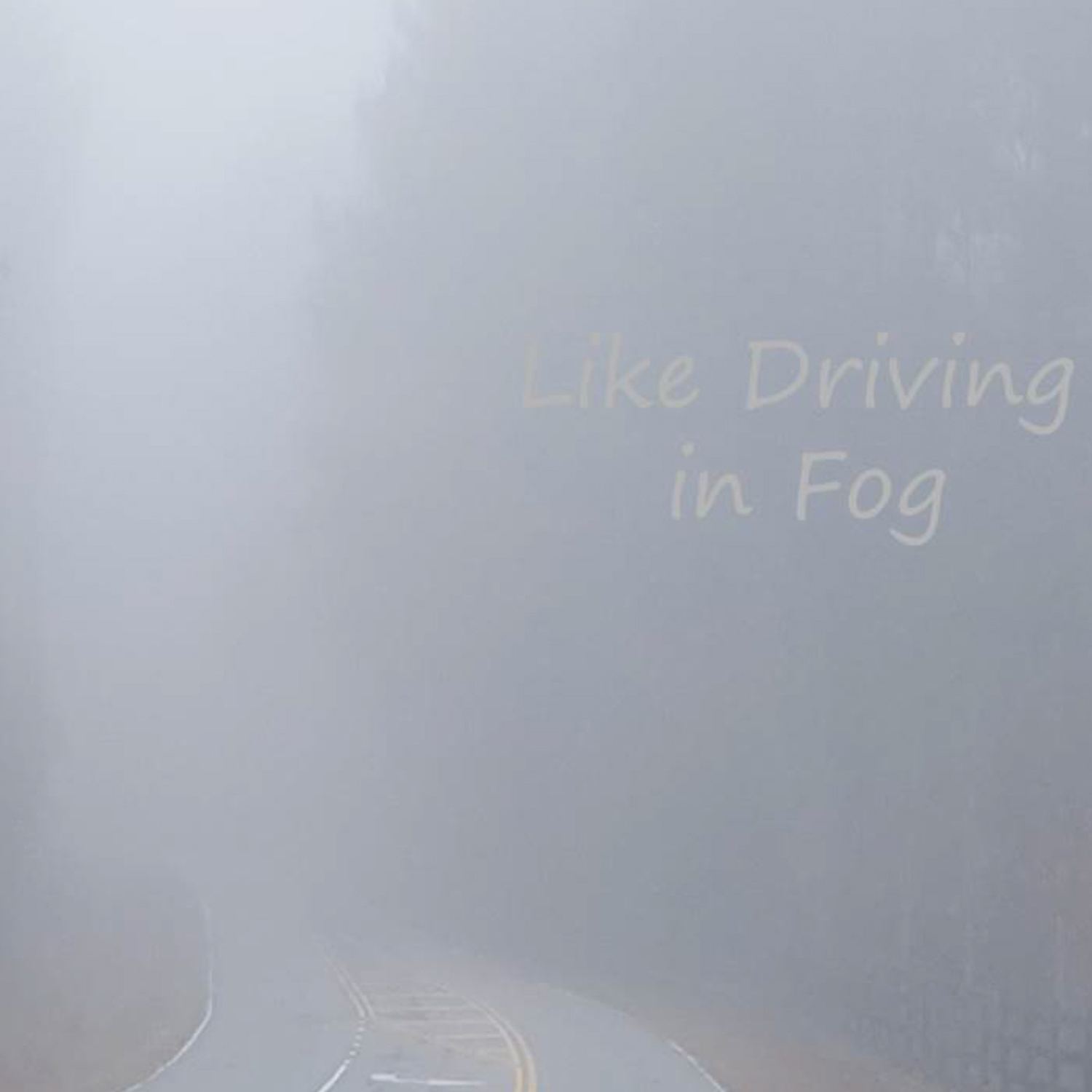Episodes

Monday Nov 19, 2018
18 - What difference does it make?
Monday Nov 19, 2018
Monday Nov 19, 2018
TRANSCRIPT
I was working on a time-sensitive project at work, and in the room on the other side of the wall, the company owner and general manager were having a shouting match. It was all I could do to concentrate on my project. Their angry voices kept interrupting my concentration, and my “fight or flight” response was kicking in as I waited for the shouting match to escalate to violence. It never did, but it was all I could do to not run and hide as I listened to them. I didn’t feel like I was 32 years old. I felt like a little kid listening to her parents fight.
I huddled in the back corner of the closet, all lights off, hoping the clothes hanging above me and the laundry basket in front of me would keep me from being seen. It was the closest thing to a “safe room” that existed in my house. I pulled a blanket over my head hoping it would make me a shapeless lump, and not as easily recognizable as a human being. My stomach did flip flops, and in my mind I repeated endlessly “Don’t let them find me. Don’t let them find me.” I was 38 years old, but I felt like I was only 3 or 4, and that a monster was looking for me.
Thanks for joining us on Lessons from Life. I’m Mary Young. Last week, we talked about definitions of emotional health and emotional healing. This week, I want to show you the difference emotional healing can make by sharing a little from my own life.
When I was very young, my folks let a family friend live in our basement. He was an alcoholic, but so was everyone they knew, so that wasn’t a problem for them. His name was Jack France, and he was my buddy. I still have a toy poodle he gave me for my 3rd birthday. It’s the only childhood toy I still have. I treasured it, because he gave it to me.
Everything I knew about Jack France when I was growing up, I learned from Mom. She told me he was my special friend. That he always had time for me. I liked having a special friend -- as the youngest, it always felt like no one had time for me, but he always did.
In all the times Mom would tell me about Jack France, she never once told me what he did to me. I don’t even know if she knew. I didn’t know, because I had repressed all the memories as a coping mechanism.
But here’s the thing about repressed memories - they don’t stay buried forever. They will eventually surface, and the average age for that is around 38. I was 37 when my memories started surfacing as nightmares and flashbacks. And I reacted to them the same way I reacted when I was a child.
As we grow up, we learn the skills we will use as adults. Not just reading, writing, and arithmetic, but how to handle emotions and how to respond to what happens around us. My family didn’t process emotions - we buried them. Keep busy, don’t think about them was the message I learned from several adult family members. If something was unpleasant, just deny it. It didn’t really happen. The only emotion I remember seeing in childhood was anger. I’m sure there was also love, but what I remember most are the times the adults were angry.
Those are the skills I carried into adulthood - bury your emotions, but it’s ok to express anger. I walked in anger, convinced that I was a victim and the world was stacked against me, although I wouldn’t have said it that clearly back then.
So I grew up, went to college, joined the military, moved away from home, and never understood why I was so hesitant to return home. Until I was in my early 30s, which brings us back to the opening lines of today’s podcast.
Growing up, my bedroom was on the other side of the wall from Mom & Dad’s. There was one time when I was very young - probably no more than 5 - and they were having an argument. I remember hearing thuds. When I was 32 and the company owner was arguing with the manager, they were on the other side of the wall from me, and it took me back to that time my parents were fighting.
That’s what PTSD does, if you don’t deal with the trauma.
That other incident I shared at the beginning, about hiding in the closet...yes, I really did that during a flashback. I also crawled under the desk in my home-office, trying to hide but still be able to talk on the phone with a friend who was virtually holding my hand while I was having a different flashback.
The thing about flashbacks -- no matter where you are or how old you are, you FEEL like you are the age and location where the trauma occurred, and experiencing the trauma again. That’s why one of the coping techniques for flashbacks is to “ground” yourself in the present.
But that’s just a coping technique. It gets you through the flashback, which is really, really important. To truly heal, you have to deal with the underlying trauma.
My childhood experiences -- being molested by Jack France, having emotionally absent parents, having a narcissistic parent, having a family tree full of active alcoholics -- taught me how to behave as an adult. But the behaviors I learned weren’t healthy, functional behaviors.
- Bury your emotions.
- Be a victim.
- Be passive-aggressive.
- Be a chameleon - do whatever it takes to be liked.
- Wait for people to figure out what you want/need instead of asking for it.
- Never take responsibility - it’s always someone else’s fault.
- Or take too much responsibility - it’s all my fault.
This is how I lived my life until I was in my late 30s. I was co-dependent when I didn’t even know what that was. I wasn’t happy. I didn’t like myself. I kept trying to be like other people who seemed happy, but it never worked for me. A friend said “Just be you!” and I had no idea how to do that.
But I never knew anything was wrong. This was my normal. As crazy as it sounds to say this: Thank goodness for the nightmares and the flashbacks. The nightmares were part of what drove me to find a therapist. The flashbacks started after I began therapy, because I finally had a safe place to talk about them and deal with them.
And a large part of my healing was processing the emotions. Somebody told me one time: “you have to feel to heal.”
Take it from me - that’s not always easy. It was actually one of the most challenging parts of my healing journey. But burying the painful emotions also buries the happy ones. You can’t numb just part of your emotions - you wind up numbing all of them.
It’s been 20 years since I first walked into a therapist’s office (and no, I have not spent all of the last 20 years in therapy), and my life is radically different than it was then. It may not look any different on the outside, other than I moved from Texas to Georgia. But the inside is where it matters. And the inside is what’s changed.
- I’m not co-dependent.
- I’m not a victim.
- I’m not defined by what happened to me - it’s just part of my history.
- I know how to nurture myself instead of needing others to do so.
- I very rarely feel like I’m 3 or 4 years old - even when something happens that used to make me feel that way.
- I recognize and admit my emotions when I feel them, and give myself permission to feel them, and time to process them.
- I take responsibility for my own happiness, and my own needs. I even ask for help without feeling like it’s an admission of weakness.
- I don’t blame myself for someone else’s bad behavior -- it’s not my fault that Jack France liked little girls.
- I don’t eat or drink my emotions away, or do “retail therapy.”
There is always more work to do on the healing journey. As I said last week, emotional health is not an either/or situation, where you’re either healthy or you’re not. It’s a continuum, and no matter how emotionally healthy I am, I can always improve.
And I’m OK with that, because I know I *will* improve, because I *have* improved. And I want this podcast to give you hope that you can, too.
I remember thinking nothing would ever change; no one would ever understand; everything was hopeless; and I was just doomed to be the way I was. But I was WRONG.
Emotional health isn’t just for other people, for the lucky ones. It’s for everyone. If I can heal, so can you. If my podcasts don’t do anything but give you hope, they’ve done enough.
You are not alone.
You are not hopeless.
You can heal.
But you have to choose to deal with whatever it is. You have to choose to feel. You have to choose to heal. Not just once, but every day, maybe even every minute.
Choose to heal, and watch your life change.
Until next time, thanks for listening, and go make it a great week.


No comments yet. Be the first to say something!